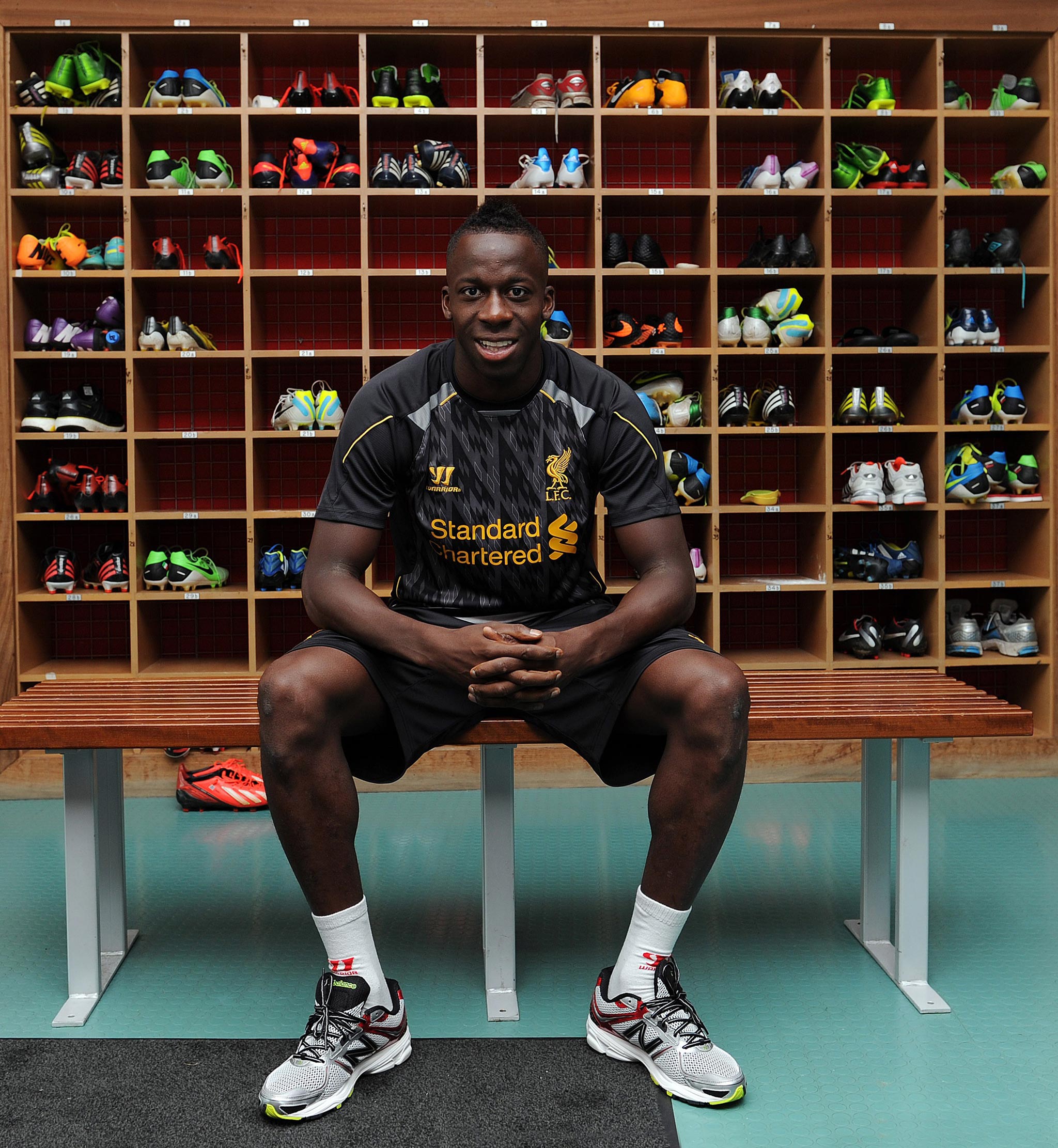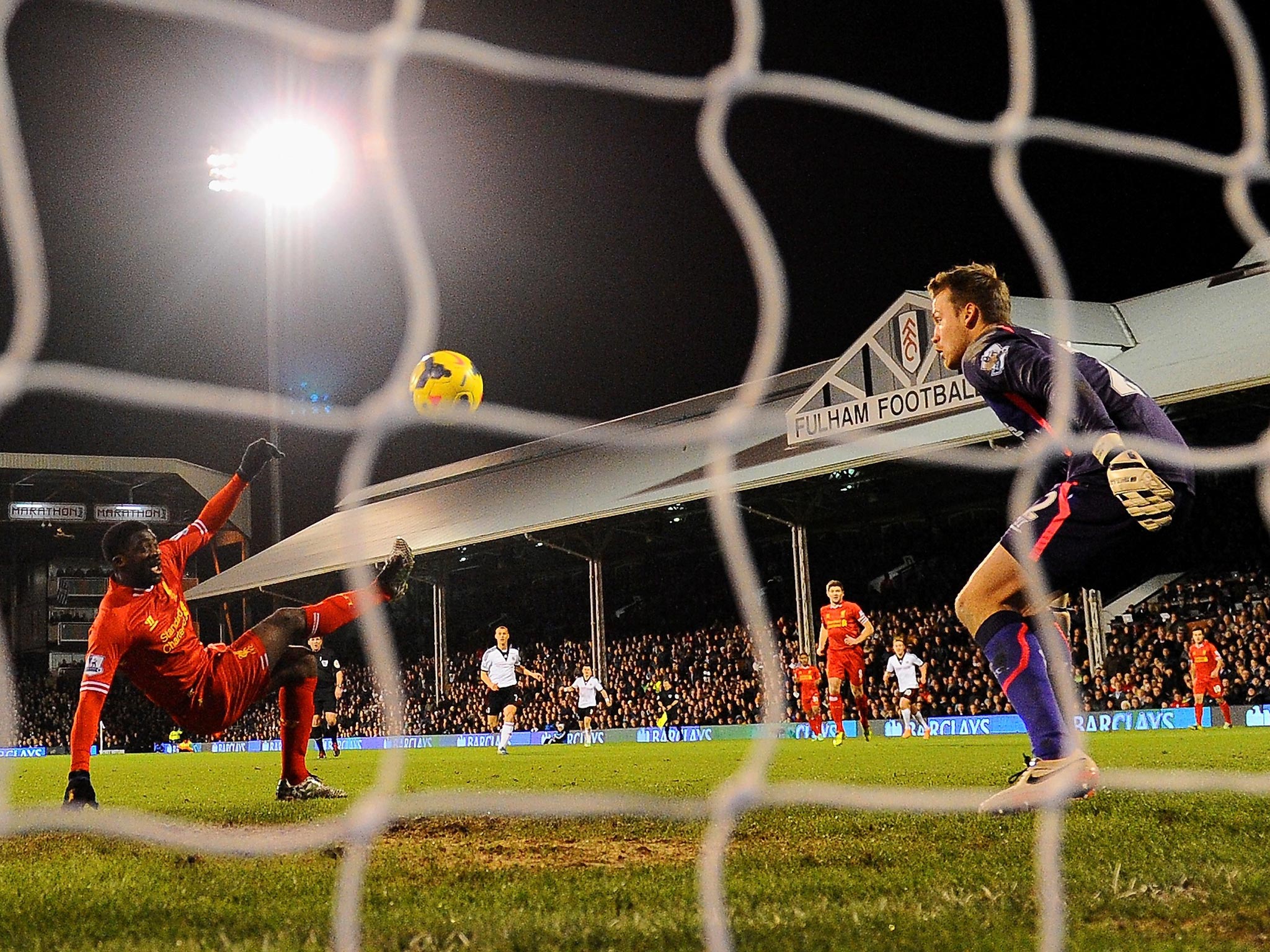FA Cup: Liverpool v Arsenal - Kolo Toure is not a clown. He is my Anfield mentor, says Aly Cissokho
When Cissokho first came to Liverpool on loan from Valencia, he was naturally drawn towards the big Ivorian

For Aly Cissokho, the sight of Kolo Touré first presenting West Bromwich Albion with their equaliser and then slicing in Fulham’s opening goal on Wednesday night was rather like watching your French teacher fail to understand the menu at Café Rouge.
When Cissokho first came to Liverpool on loan from Valencia, he was naturally drawn towards the big Ivorian, and not just because both spoke French. Touré had won championships with Arsenal and Manchester City. He had both the scars and the decorations of battle and his presence was nothing if not reassuring.
“Reassuring” is not the kind of description that has been much applied to Liverpool’s back four lately. Only Manchester City have scored more goals in the Premier League, but four clean sheets in the last 21 matches tell their own story. Liverpool’s defence is still seen as the biggest handicap to their pursuit of the trophies their attacking play almost demands. Cissokho, however, still has faith in his mentor.
“Kolo has been a big influence on me,” said the left-back. “He has marked my card on many occasions. For example, he told me what to expect when we went to play Stoke at the Britannia. He explained to me it would be windy, the ball would be in the air all the time and I’d be up against big, strong lads.
“There are a lot of youngsters in the squad and people like Kolo and Steven Gerrard are very important, especially in the middle of a match. They are a voice out on the park, telling us to slow things down or play a longer game.
“Simon Mignolet also speaks French and that’s important for me because I’ve got Kolo alongside me and Mignolet in goal behind me. Sometimes, you do have to react quickly and then your first thoughts will be in French and it helps if you can shout it out to someone near you.”
Cissokho’s thoughts after his first game at Anfield were miserable ones. It was a League Cup tie against Notts County and lasted 10 minutes. He left the pitch in tears. “It was a terrible moment. I was so excited, so keen to do well. As soon as the tackle happened, I knew something wasn’t right. I felt my ankle go and I knew it was bad.” Touré did not finish the game either, carried off with a groin injury.

It was two months before Cissokho returned, for the 2-2 draw at Newcastle in October, but he completed only one other match before Boxing Day. As a loan move it looked to be as unproductive as the one that had taken Victor Moses to Merseyside from Chelsea.
There was little doubt of the 26-year-old’s pedigree. He was born on the banks of the Loire in Blois but it was in Portugal that he proved his worth, first with Jose Mourinho’s old club Vitoria Setubal and then under Porto’s more unforgiving floodlights.
His display against Cristiano Ronaldo in the European Cup quarter-finals in 2008 led to the suggestion that if Cissokho were to come to the Premier League, it would be to Manchester United. Instead he was transferred to Milan, a deal which was cancelled when the club doctors discovered a problem with the player’s teeth which, they said, might indicate a spinal weakness. He returned to France to play for Lyons, who set rather less store by his dental records.
“When you go to a big club – and I have played at a few – you need to integrate as quickly as possible,” Cissokho said. “If you don’t know the language, that makes it a little bit more difficult but, irrespective of that, the single most important thing is to make your reputation quickly by your performances on the pitch. It wasn’t easy for me here. You have to consider the speed and the intensity of the game. It is not so much the tackling but the sheer physicality of the individual battles around the pitch that you have in English football.
“But as you get more games under your belt you get up to speed with the Premier League, its rhythm and its pace. I like to think that, though it was tough at the beginning, I have started to judge the pace of the game better, especially at the start.”
The start of the last encounter between Liverpool and Arsenal was the most astonishing opening 20 minutes Cissokho had been involved in anywhere. Arsenal, the league leaders, were 4-0 down before the game had properly begun. Mikel Arteta remarked that he had never heard Arsène Wenger use the kind of language he employed in the dressing room at half-time.
“I hope there weren’t any late arrivals,” Cissokho smiled. “It would have been sickening had you missed those first 20 minutes. The memories of that match will be etched in the minds of a lot of people who were at Anfield that day.
“It’s been a tough week for Arsenal, hasn’t it? They get beaten 5-1 by us, have a draw against Manchester United and then have to play us again on Sunday. Then, straight afterwards, they have the world and European champions in Bayern Munich. They might have half their mind on the Champions League.
“Their run of form isn’t that impressive but Arsène Wenger is very experienced at handling these big games. We have to make sure we profit from their slight drop in form and not allow them to develop their game, not allow them to pass the ball or feel comfortable.”
Cissokho was asked if, when the final whistle went at Anfield, he had said anything to Arsenal’s French contingent. “No, they just wanted to get off the pitch and get away. They didn’t want to hang around and chat.”
Join our commenting forum
Join thought-provoking conversations, follow other Independent readers and see their replies
Comments